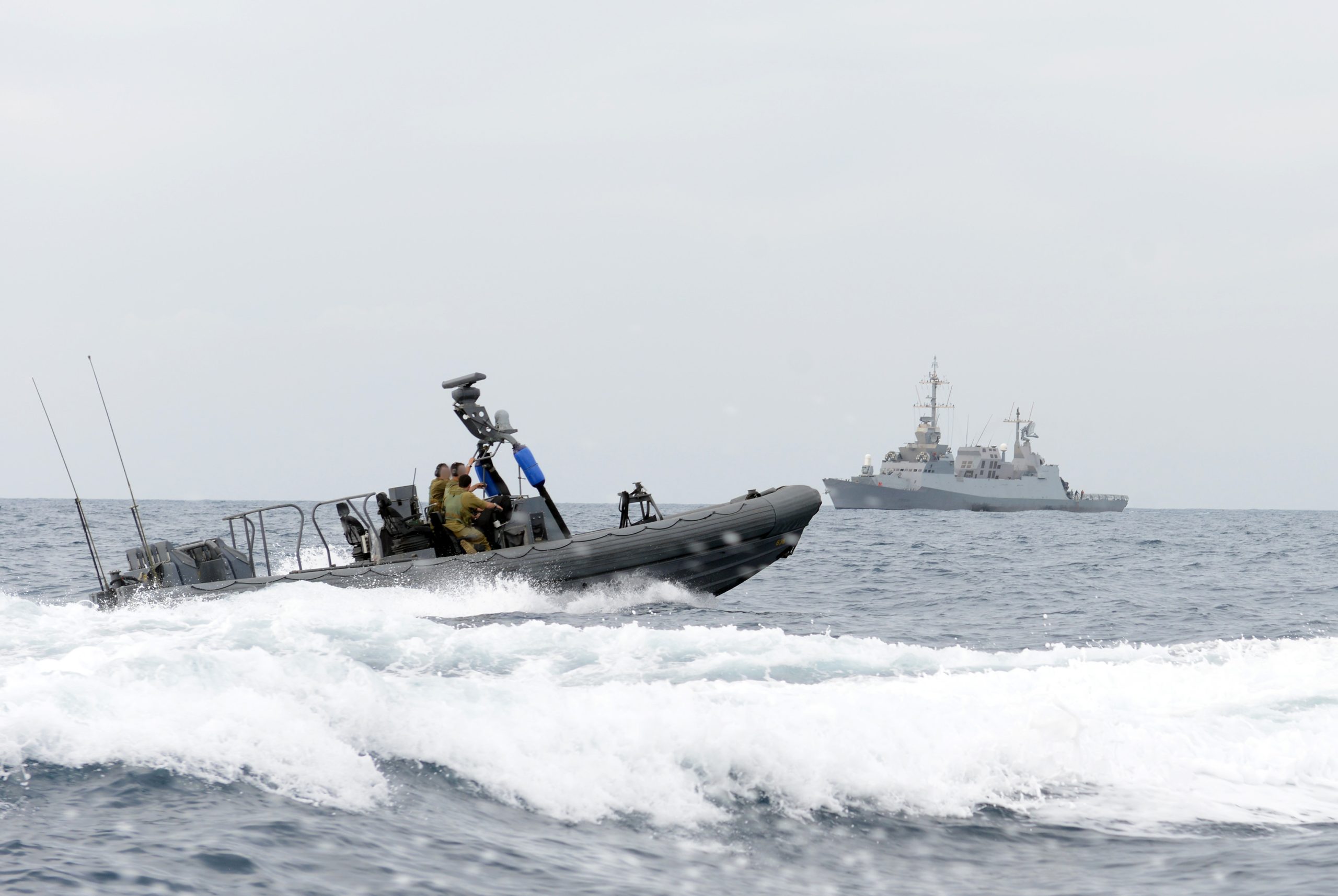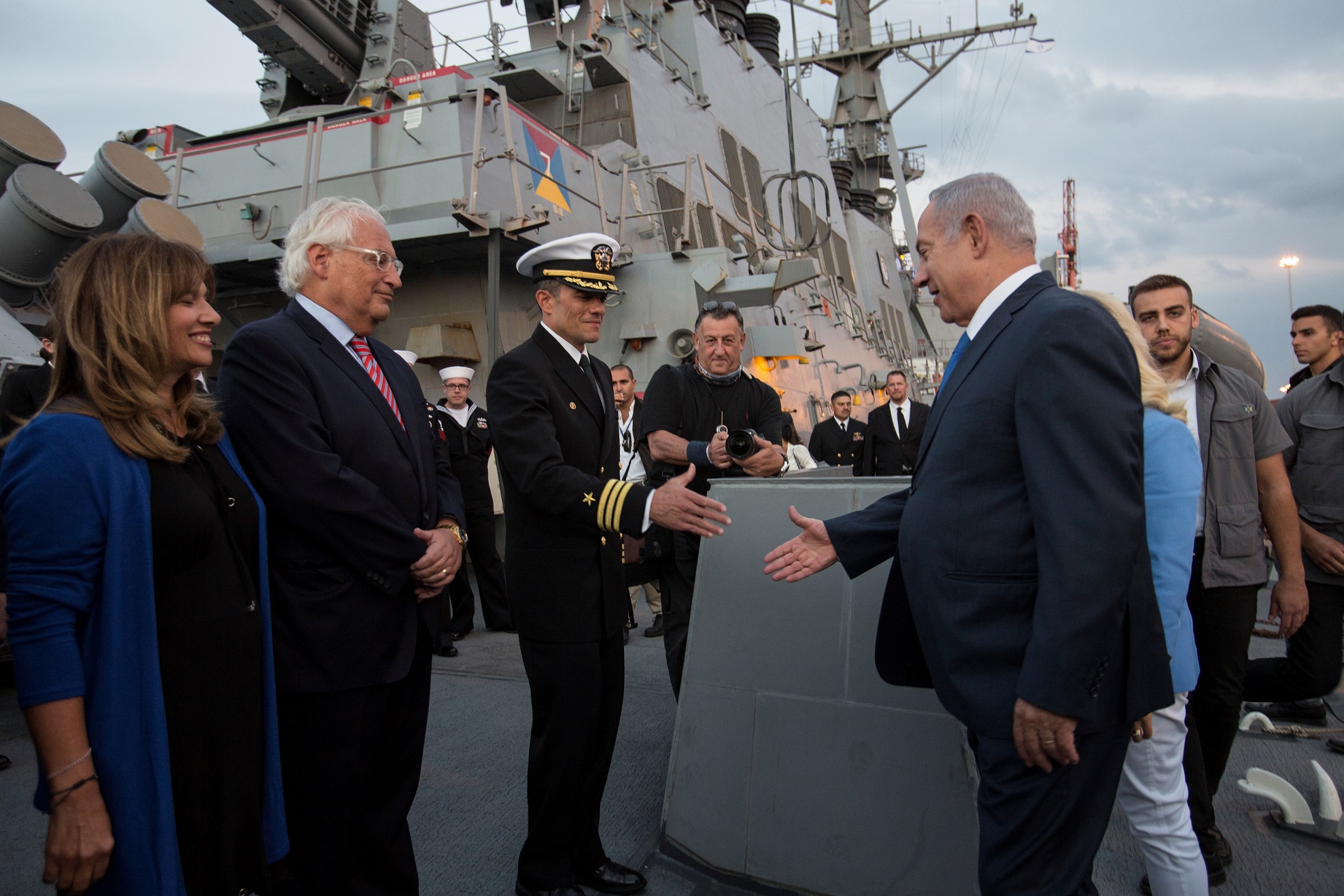Publications
INSS Insight No. 1728, May 22, 2023
A bill regarding the formulation of a naval strategy to address the threat of maritime terrorism in the Middle East, currently before the US Congress, provides another opportunity for understanding the maritime arena as a significant element in Israel’s national strategy regarding the Iranian threat.
The importance of the maritime domain has grown in recent decades, for a variety of reasons. The maritime domain plays an increasing role in world trade, with the global economy now actually “travelling by sea”; the “blue economy” has been enhanced due to the scarcity of land and the evolution of technologies that enable food production, energy production, and the relocation of critical infrastructures to artificial islands. The need for fast communication infrastructures has also led to the growing use of submerged telecommunications cables.
At the same time, the open seas and the freedom of navigation face several security challenges. The freedom of navigation in the Middle East is challenged by Iran and its proxies, which operate in the Red Sea, the Arabian Sea, and the Persian Gulf, and recently in the Mediterranean Sea as well. These challenges include strikes against ships or marine infrastructure facilities using vessels or UAVs, naval mines, and various types of surface-to-sea missiles aimed at naval targets, alongside boarding of ships transporting energy through the Persian Gulf by Iranian forces, as a means of putting pressure on corporations and countries.
A bill submitted to the US Congress calls for the formulation of a naval strategy that includes an alliance to combat naval terrorism in the Middle East. This proposal suggests the formulation of a regional alliance in the Middle East in which the member states will support the realization of US interests – even while the United States focuses its attention on other regions of the world, mainly the Far East.
Israel could play a significant role in the execution of this strategy. The Abraham Accords, along with the transition of US-Israeli military cooperation from the European Command (EUCOM) to Central Command (CENTCOM), position Israel to be a key player in the establishment of a naval alliance, led by the US Fifth Fleet, headquartered in Bahrain. Over the last two years, the Commander of the Fifth Fleet, Vice Admiral Cooper, has led a process of reinforcement of regional alliances within his command. In addition, he enhanced the force buildup with respect to “unmanned naval vessels,” in response to the increasing threats to the freedom of maritime navigation and traffic. Israel itself puts much effort into strengthening its relations and cooperation with both the Fifth Fleet and relevant countries in the region.

The Israeli Navy and other Israeli state entities are actors in the maritime domain. As such, they constitute a key element in the establishment of a meaningful alliance, in order to stabilize the maritime theater in the area, based on the uniqueness of this domain and the nature of its naval activity. Israel’s integration into such an alliance would be a cornerstone of implementation of maritime diplomacy, which is one of the traditional roles of any navy, as noted by Prof. Shaul Chorev in his book, The Maritime Domain, Naval Strategy, and What Lies Between (Maarachot, 2021). Maritime diplomacy involves a variety of maritime activities in peacetime, intended to influence other countries’ behavior. Navies can sail freely in the open sea, participate in humanitarian activities, assist in search and rescue operations, and perform other functions in cooperation with other navies in the region with low signature, as well as launch aerial and land operations from the sea.
The common language shared by seamen in different navies has unique characteristics that allow sailors of various nationalities to converse, even if no official diplomatic relations exist between these countries, since safety of navigation and the nature of maritime missions performed at sea prevail and overcome existing diplomatic barriers. British theoretician Ken Booth has named seven characteristics of a navy that manifest themselves in maritime diplomacy: multifunctionality, control capabilities, mobility, projection of power, reach, symbolism, and the ability to remain at sea for a prolonged period. All these characteristics are relevant for Israel’s possible role within a regional naval alliance.
Collaborative maritime diplomacy and coalition building will convey a message of unity among the members of the alliance, while strengthening state commitments. The advantage of naval operations is that it enables collaborations without actually threatening the territory of any sovereign state, but rather using international waters, enhancing trust among all members. For several years now, a coalition comprising a number of Arab states has been operating in the Red Sea preventing violations of free navigation in the Red Sea, mainly by Houthi forces in Yemen.
The Israeli Navy, as well as other arms of the IDF, may play a significant role in providing naval awareness, i.e., the collection of data and the creation of an aerial and naval picture of all forces operating in the region, including civilians and military or semi-military actors operating under and above water, in nearby as well as distant domains. Thus, Israel may be instrumental in thwarting, disrupting, and neutralizing threats against targets at or from sea. In addition, Israel is capable of exercising coercion and naval operations – thus preventing adversary actions against all or part of the alliances. Time and again the Israeli Navy has demonstrated these capabilities in recent years. Such activities may be accompanied by naval deterrence operations, intended to discourage the foe from conducting acts of naval aggression, or any operations at all.
Moreover, the Israeli Navy boasts a wide variety of vessels, capabilities, and units capable of operating within a broad range of task forces, from humanitarian missions, escort missions, and missions to secure the freedom of navigation in threatened areas, through picture buildup or intelligence collection, to thwarting of acts of terror and smuggling of weapons. Naval forces can operate with high or low signature, in cooperation with other forces in the Mediterranean, the Red Sea, and other locations. All these activities are highly relevant for coping with the threat posed by Iran and its proxies.
The State of Israel, with the IDF in general and its naval forces in particular, may prove to be a significant partner in this naval alliance, due to its overall intelligence capabilities and the deployment of its submarine and surface forces, as well as its vast operational experience in the maritime domain. Israel’s defense industries are at the forefront of technology in various fields of naval systems and thus become an important actor in such a naval alliance. Participation in the alliance would provide an opportunity for the continued development of such capabilities.
Israel must take advantage of its value to the United Stated and the countries of the region in terms of responding to various threats to the freedom of navigation, mostly in the maritime zones adjacent to the Red Sea, Arabian Sea, and Persian Gulf nations. The US bill can serve as the basis for developing engagement with the maritime domain in general, and maritime diplomacy in particular, as a meaningful instrument for coping with the challenges presented by Iran and its proxies.



